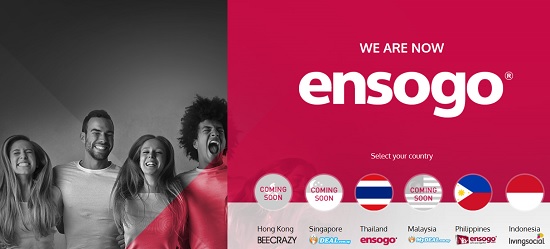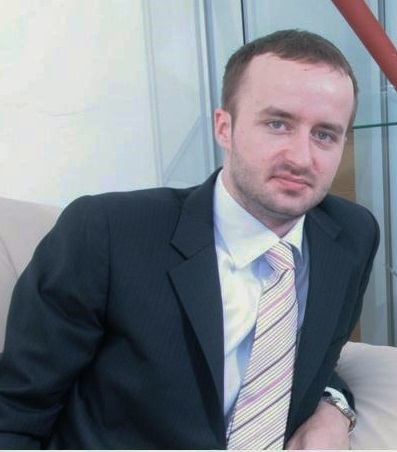iBuy under pressure, board orders US$216K monthly opex cut
By Karamjit Singh (with additional reporting by Gabey Goh) November 13, 2014
- CEO declines to comment on internal company matters
- Claims Oct to be record month but ‘always looking’ at costs

SOUTH-EAST Asian e-commerce company iBuy Group has had to take stern cost-cutting measures, not helped by its share price dropping steadily since August, to close at A$0.145 cents on Nov 12, having hit an all-time low of A$0.115 cents on Nov 4.
Sources told Digital News Asia (DNA) that staff are unhappy, with many being “encouraged” to leave, and the company ready to rebrand itself as Ensogo.
Internal correspondence seen by DNA showed the board, whose chairman is Patrick Grove, ordering management to cut monthly operating expenses (opex) by A$250,000 (US$215,880).
The document reveals iBuy chief financial officer Rafael Melo asking country managers in Malaysia, Singapore and Thailand to come up with ideas to cut A$50,000 each, with Indonesia and the Philippines to cut A$20,000 a month. [A$1 = US$0.86]
Only marketing expenses are unaffected. The cuts work out to 6% of average opex over the past three months.
A look at iBuy’s financials shows that the group spent close to A$10 million on wages and salaries during the first half of 2014. This is significantly higher than the amount spent by iCar and iProperty, its sister companies in the Catcha Group. iBuy has a current headcount of 780.
The communications from Melo reveals the board to be unhappy with the group losing A$1.5 million a month despite its recent top-line growth. Revenue from the first half of 2014 to June 30 stood at A$25.8 million versus the A$38.5 million over the entire 2013.
Man in the centre
 Sitting in the centre of this is its new chief executive officer (CEO) Krzysztof Marszalek (pic). Clearly frustrated, he described the situation as “a huge disconnect between share price and actual business performance.”
Sitting in the centre of this is its new chief executive officer (CEO) Krzysztof Marszalek (pic). Clearly frustrated, he described the situation as “a huge disconnect between share price and actual business performance.”
In an interview with DNA, he said he wished the market would judge the company in six to nine months, when the results of the changes he is instituting now filter through to financial performance.
“Actually, we had our best month ever in October and before that, July and September were the next strongest months,” he claimed, adding, “We are in our best position ever.”
That may be so, but when asked to confirm the monthly A$250,000 opex cut, Marszalek declined to comment on “internal company communications.”
He preferred to focus on the fact that revenue for the first half was A$25.8 million, adding that by comparison, the A$250,000 in opex cuts was very small.
“We are a public-listed company and always have to manage our costs. That is the CEO’s job and even with the record month we had in October, we are always looking to save money and pass that on to our customers,” he said. “It never stops.”
Marszalek took over as CEO in September after running its Hong Kong operations. He was the founder of the Hong Kong e-commerce site that was part of iBuy at the time of its initial public offering in December, 2013.
He had hit the ground running as CEO, trying to consolidate six different companies into one while aiming to build a world-class team in the process, he told DNA.
That consolidation process has already led to the headcount being trimmed to its current 780 from a larger figure Marszalek declined to disclose, when it made its most recent acquisition in April, buying the South-East Asian assets of US-based deals site LivingSocial for US$18.5 million.
LivingSocial was operating daily deals sites in Malaysia, the Philippines, Indonesia and Thailand, and according to Marszalek, had “quite a bit of fat when we took over.”
Rebrand to Ensogo
Meanwhile, the consolidation process took another step with iBuy getting approval at its annual general meeting in Australia to change its name to Ensogo, which happens to be the name of the site it operates in Thailand.
“I think it is very important for us to operate as one company, under one brand,” Marszalek said.
Ensogo was chosen as the group name because it is the most successful of the e-commerce sites under the group, with Marszalek claiming it has an 80% share of the Thai e-commerce market.
“We are taking a winning brand and deploying it regionally,” he added.
Until the rebranding takes root however, iBuy is really six companies operating under one umbrella, with Marszalek pointing out that it only listed on the Australian Securities Exchange with three companies, then added another three companies in April with the LivingSocial acquisition.
He said he hopes the move will see stronger buy-in and alignment of goals between all levels of the organisation as it tries to build iBuy into the leading e-commerce site in South-East Asia.
Central to this happening is also the rollout of a groupwide technology platform under the leadership of its first chief technology officer (CTO), hired in September to lead this. The executive was previously from leading Australian retailer Harvey Norman.
Marszalek said that this would give the company an immediate top-line boost, besides giving management daily visibility of how the various markets in the group are doing.
There have been rumours that iBuy is planning to cut its IT teams that currently sit in Bangkok, Singapore and Hong Kong, and is even pressuring some to resign.
Marszalek denied this. “We actually need more progammers. Good tech talent is so hard to find, why would we want to get rid of ours?”
While in a previous interview with DNA, he had highlighted the benefits of the group consolidating its buying, it still has not realised the full benefit of such a consolidated approach, he acknowledged, with the various countries still buying in ‘silos.’
But the platform will see that change and one market has already migrated to it, he added. After the bugs have been ironed out, the other five countries will quickly migrate over by Christmas.
Such is the importance of this platform for it to deliver its e-commerce services that the project has been accelerated from a Q1 2015 target to December, 2014. Meanwhile, the rebranding exercise would take up to six months.
“But I don’t just see it as a branding exercise,” said Marszalek.
“It is an opportunity to bring everyone in the company together under one name, and to really start building a sense of shared mission and teamwork to meet the target of becoming an A$1-billion revenue business as set by Grove at our first board meeting,” he added, declining to share the target date for this.
Related Stories:
iBuy listing reinforces value of SEA market to investors: Grove
China sourcing hub a key move for iBuy
iProperty’s widening loss: A deeper look into the business
iCar net loss widens, remains optimistic on long-term goals
For more technology news and the latest updates, follow @dnewsasia on Twitter or Like us on Facebook.


